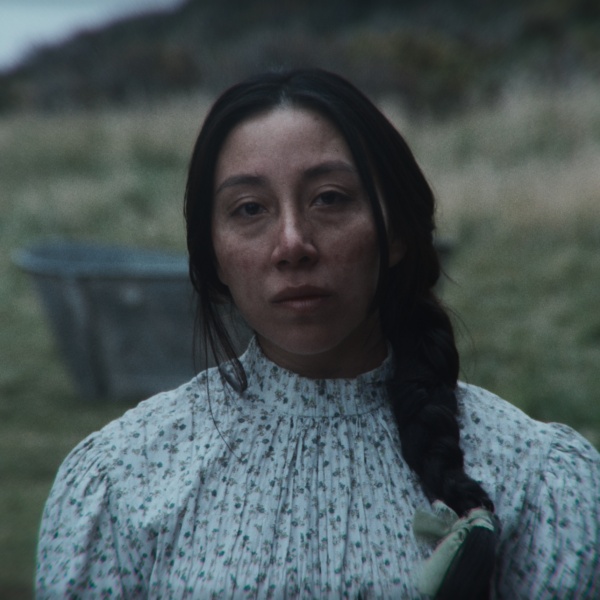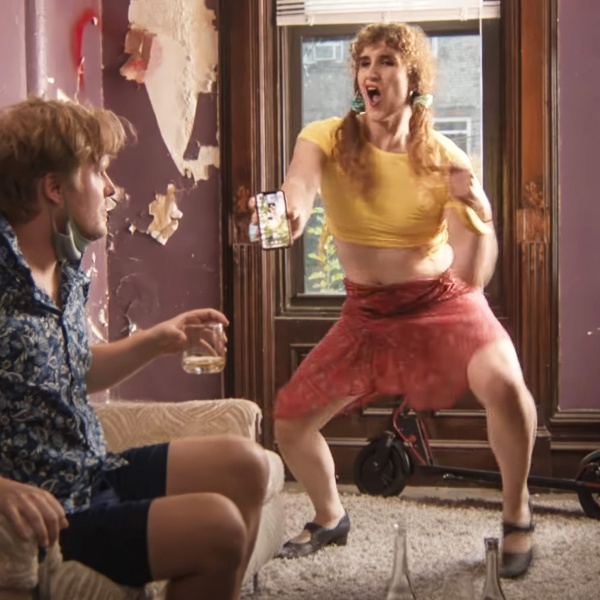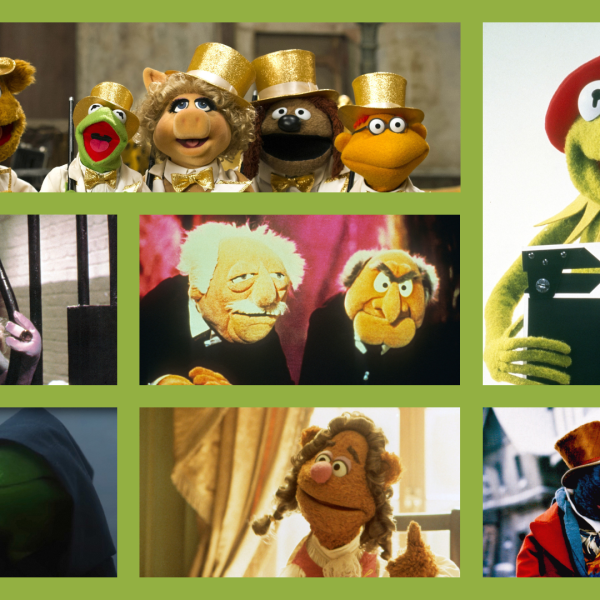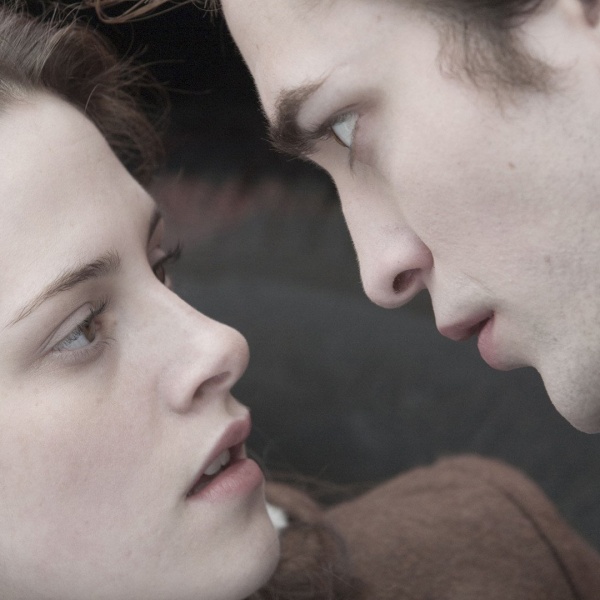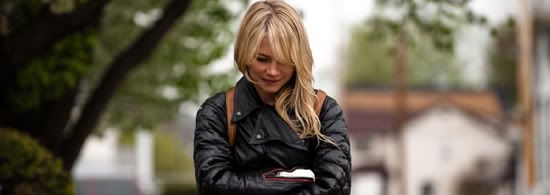
The devastating but beautiful love/breakup story mashup “Blue Valentine” has taken a long time to come to fruition. When we recently sat down with star Michelle Williams, who gives an award-worthy performance in the film, she spoke of her passion for the project, and how she wanted to make it for more than six years after reading the script by co-writer and director Derek Cianfrance (two other writers are credited, Joey Curtis and Cami Delavigne). But Cianfrance had other plans once shooting began.
“I loved it because of the script that I read, because of the words, because of the story, because of all this,” Williams said. “I show up to set for the first day and Derek says to me, I wrote that script twelve years ago, that script is dead and if you say any of those words you’re going to bore me, so go out there and surprise me. And I was aghast, I’m here because of the script. He wanted me to improvise.”
But Williams had never improvised, and in fact, had done all she could to avoid it. Suddenly she had no choice. While Williams found this aspect of making “Blue Valentine” a challenge, clearly Cianfrance was on to something, as the film carries a lived-in, very realistic tone, thrusting the audience in to a situation that feels as if we’re privy to a private collection of memories. It’s as if we shouldn’t be allowed to watch these moments between Ryan Gosling‘s Dean and Williams’ Cindy, but yet it’s near-impossible to look away. Anyone who’s experienced the joys of falling in love and/or the pain of losing that love will be hard-pressed not to empathize.
“I like movies that are alive,” said Cianfrance when we spoke to him during a group discussion. “After spending 12 years working on the film and writing 66 drafts of a script and 1224 story boards and writing a manifesto on watching the movie every day in my head, I was so nervous when I finally got to set that it would be flat, that it would be stale. Because it was just too thought out.”

That sense of a living, breathing, all-too real relationship seems to have come from this improvisation first and foremost, as the dialogue feels real. “It’s like life, when you’re saying something for the first time, getting everything wrong, not being able to say the right thing,” Williams said. After shooting the past sections of the film, when Dean and Cindy fall in love, Gosling and Williams then lived in a house together for a month (not full-time, though) to undergo the physical changes necessary for the characters.
“We inhabited the house like Dean and Cindy would, or like our imagination of Dean and Cindy would during the day,” she said. “[We] learned how to fight, hate each other, how to disintegrate and destroy what would take six years in a marriage in one month.”
When we spoke with Cianfrance and Williams, it was the day before the appeal to the MPAA to change the NC-17 rating initially given to the film. So while it’s old news at this point that the film now carries the more appropriate R rating, we did get a lot of interesting responses from them about the MPAA and sex in movies that are kind of fascinating even after the rating swap. The main issue seemed to be about the oral sex scenes in the film.

“Something about a consensual act, about a woman’s pleasure and sense of herself and releasing of herself, I’m stuck on where the harm is, where the danger is, where the violence is, or even where the sex is in that,” Williams argued. “Maybe it’s because it’s a first? Maybe it’s because it’s their first time seeing… yeah I guess, or their first time coming across that issue, they haven’t had that issue in a movie before, I don’t know.” Incidentally, the excellent Kirby Dick MPAA-expose doc “This Film Is Not Yet Rated” cites a equally condemned oral sex scene in Kimberly Peirce‘s “Boys Don’t Cry,” so this wouldn’t be the first time the ratings group has come up against the issue, and not the first time they’ve balked at it.
“We wanted to make a film about relationships. In relationships there’s sex, and you know, sexuality. You can’t have this relationship movie without sex,” Cianfrance insisted. “And we chose not to sensationalize ourselves with sex scenes. We chose to look at sex in this movie the same way we looked at everything else in this movie, with kind of overall honesty, and I just think we’re being punished for that, and I just feel that it’s a mistake that the MPAA made, honestly. It’s actually responsible filmmaking, I think, to treat sex like there’s consequences to sex. If you have unprotected sex you could get pregnant. If you have a baby [and] you were thinking about going to med school maybe you’re not going to go to med school now because with a baby you’re not going to have time. I just think there’s repercussions to people’s choices.”
“[We as] filmmakers took it seriously,” he continued. “And because the actors are so good in the scene and it looks like they’re having sex, even though you see nothing, we’re being punished for them also being good actors. As a parent myself, my kids are six and three, I would not let them see ‘Blue Valentine’, but when they’re older, and if they’re ready, it’s my job as a parent to know if they’re ready or not, maybe I would show it to them and I can guarantee I’d rather show them the sex scene from Blue Valentine then some sensationalized sex scene from ‘Basic Instinct‘ or some kind of soft-core, erotic, titillating sensationalized view of sex. There’s a responsibility in the way we made it.” -Interview by Drew Taylor
“Blue Valentine” hits theaters in limited release, tomorrow, Wednesday December 29.
